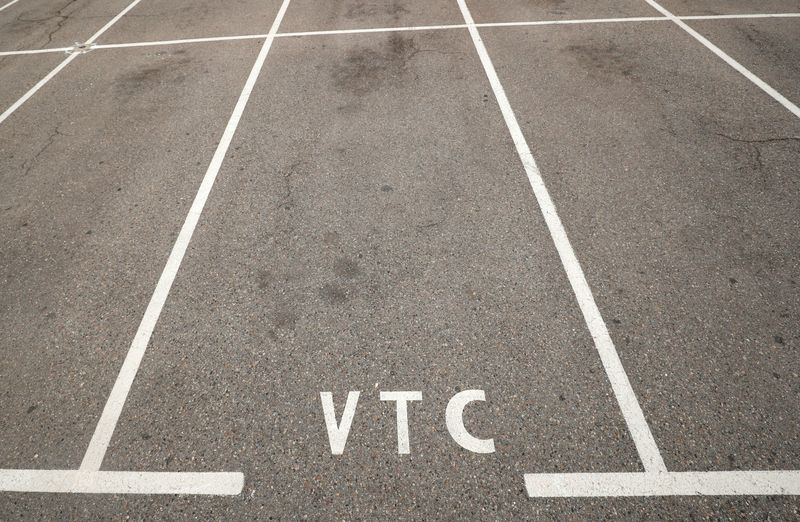MADRID (Reuters) - Hundreds of ride-hailing app drivers in Barcelona and other Spanish cities could lose their jobs on Saturday when a deadline for new rules covering these services expires, drivers and fleet owners told Reuters.
Spain's regional governments were told to issue new rules for private cars transporting passengers hired through mobile platforms such as Uber (NYSE:UBER), Bolt and local rival Cabify, after protests from taxi drivers over unfair competition.
Some regions, such as Madrid and Andalusia, are allowing the drivers to continue to operate as before, but others, such as Barcelona, introduced more restrictive measures.
Some regions failed to act before the deadline, meaning ride-hailing app drivers in those areas can only take passengers on trips between cities rather than within them.
In Barcelona, the country's second largest city, the rules could force many drivers out of business with tough requirements such as a minimum car length or full ownership of vehicles, drivers and car fleet owners said.
Some drivers intend to continue to operate until authorities process requests to keep them in business, though the legal status of this is unclear.
While some of the ride-hailing apps, such as Uber and Cabify, have used the transition to strike deals with taxi drivers to work for their applications, self-employed drivers are left out in the cold.
Uber declined to comment for this story.
Arshak Georgian, who joined the gig economy, is an Armenian who has lived in Spain for the past 16 years. He originally worked as a cook and now depends on his car and licence in Barcelona to raise his two daughters aged eight and four.
"I'll go out to work tomorrow because I am willing to take the risk, I am doing nothing wrong," Georgian said on Friday. "It's unclear the police will let us work, though."
Ride-hailing company Bolt has come up with a temporary solution to keep working in Barcelona: adding a metal bumper to extend cars' length to comply with the new rules, which aim to set safety and quality standards.
"We don’t think this is the ideal solution," Bolt said in a blog. The company wants to send "a message about the counterproductive nature of the city's new regulation."

Jose Manuel Berzal, head of UNAUTO, the biggest association of drivers and fleet owners in Spain, said it is unclear if the bumper extensions, costing 1,000 euros ($977.70) each, will satisfy the authorities.
($1 = 1.0228 euros)